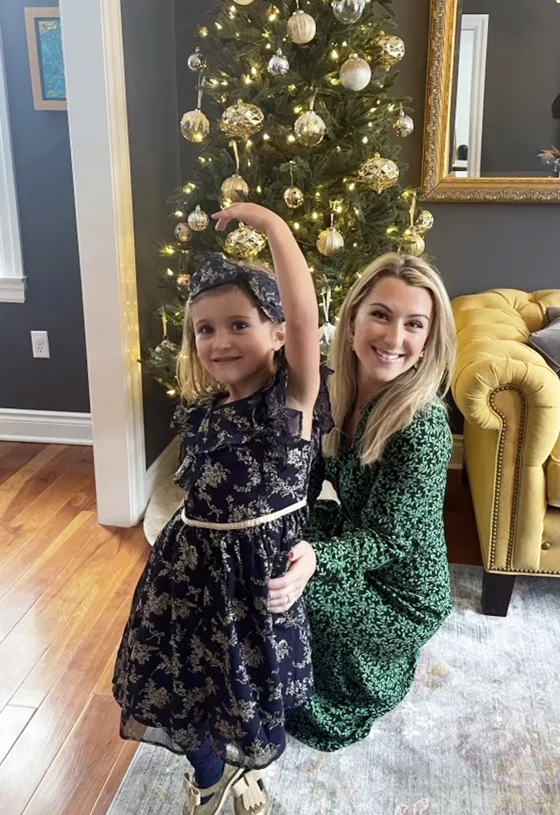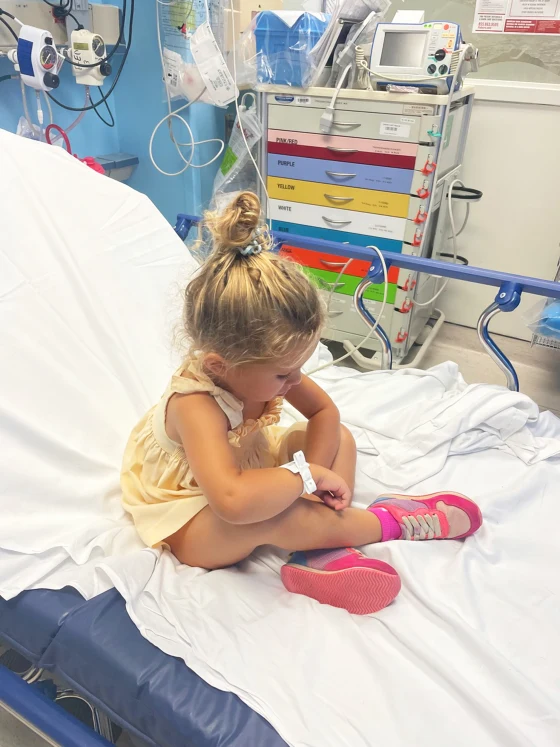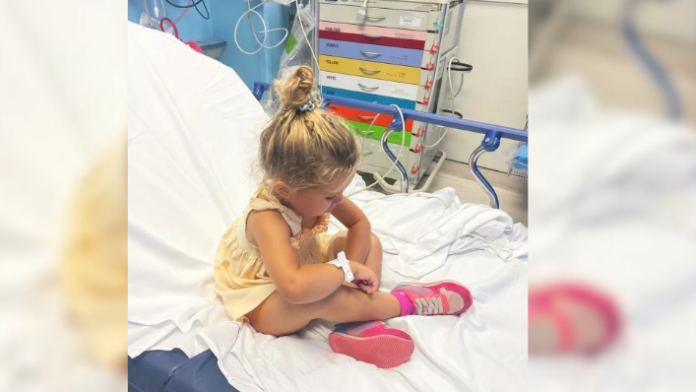I’ve always been a little nervous as a mom. My personality type lends itself to always being prepared for the worst case scenario. To that end, when my youngest had an allergic reaction to oatmeal as a baby, I was on high alert for other food allergies. Thankfully, he outgrew the oatmeal allergy, although he developed a gluten intolerance. Fortunately, none of that is life-threatening and he doesn’t have any kind of allergy to other foods. It took a long time for me to relax about it, though, because the problem with those severe allergies is, many times you don’t know they are an issue at all until the first time a reaction happens and it’s immediately life-threatening. That nightmare scenario is what happened to Florida mom Meg George.

In a powerful essay on TODAY Parents, George writes about how she discovered her daughter’s life-threatening cashew allergy in the exact moment of her first reaction, which was severe and critical. She was at a community Christmas tree lighting with her family when her daughter’s face blew up immediately after a couple bites of nut-based ice cream.
Incredibly, though George had no inkling her daughter was allergic, she immediately knew what to do to get her help. You see, just weeks earlier while touring her kids’ new school. she had learned about another child with a severe nut allergy named Oakley. In her essay, George explains how and what she learned about Oakley upon seeing red sneakers posted all over the school. She says:
“’What’s the red shoe all about?’ I asked the Head of School. She told me to look up a nonprofit called Red Sneakers for Oakley and read the story on their site…the shoes represented a favorite pair once worn by Oakley, a young boy who lost his life to an allergic reaction to nuts. He’d attended this very school at the time of his passing. Thereafter, his parents founded an organization to advocate worldwide for food allergy awareness and the use of epinephrine, something that was not used at the time of his passing, and that his parents openly wish had been.”
That night George read everything she could find about Oakley, his parents, and their organization. Then she tucked the information away, no doubt hoping she would never need it.
And then, at that community Christmas tree lighting, seeing her daughter’s swollen and distorted face, she did need it. And she began doing everything she could to get her daughter help. Because of Oakley’s story, she knew what was happening, and what she had to do.
She explains the terrifying moments, saying “I screamed, picked her up and yelled incoherently to my husband that we needed help. Oakley’s images flashed through my mind at lightning speed — because of his parents, I knew we needed epinephrine…To be honest, I don’t know what I screamed, but I know that it was enough to attract the person who saved our child. A man approached us with his wife and young son trailing behind. ‘Do you need an EpiPen?’ he asked us, and then added, ‘I’m a doctor and my wife has one in her purse. Do you want me to administer it?’ It was like I was having an out-of-body experience. I shouted an enthusiastic yes while my husband called 911. Some of this felt like hours and some of it felt like milliseconds, but her symptoms started to improve within a minute of the injection, and I was flooded with relief when the doctor told the paramedic upon the ambulance’s arrival that she was going to be OK.”

Reading George’s essay, I got a lump in my throat thinking about how Oakley’s story had saved another child’s life. His loss is profound, but it is not in vain. And I can’t help but marvel that at the exact moment that Meg’s daughter needed help, a doctor with an EpiPen was right where she needed him to be. It really makes one believe in guardian angels, and it makes one know without a doubt that you can use tragedy for good.
George’s daughter soon got allergy testing that confirmed her life-threatening cashew allergy, and she now says she is doing well but that “forevermore, epinephrine injectors are an extension of our body.” She says that because Oakley’s family sharing their story saved her daughter’s life, she is sharing their story in hopes of doing the same.
“No matter how painful the memory,” she says, “it’s our turn. Familiarize yourself with food allergies even if your kids don’t have them — we did, and I am grateful for it every single day. As with most things, time does heal wounds, and knowledge is more powerful than fear.”

